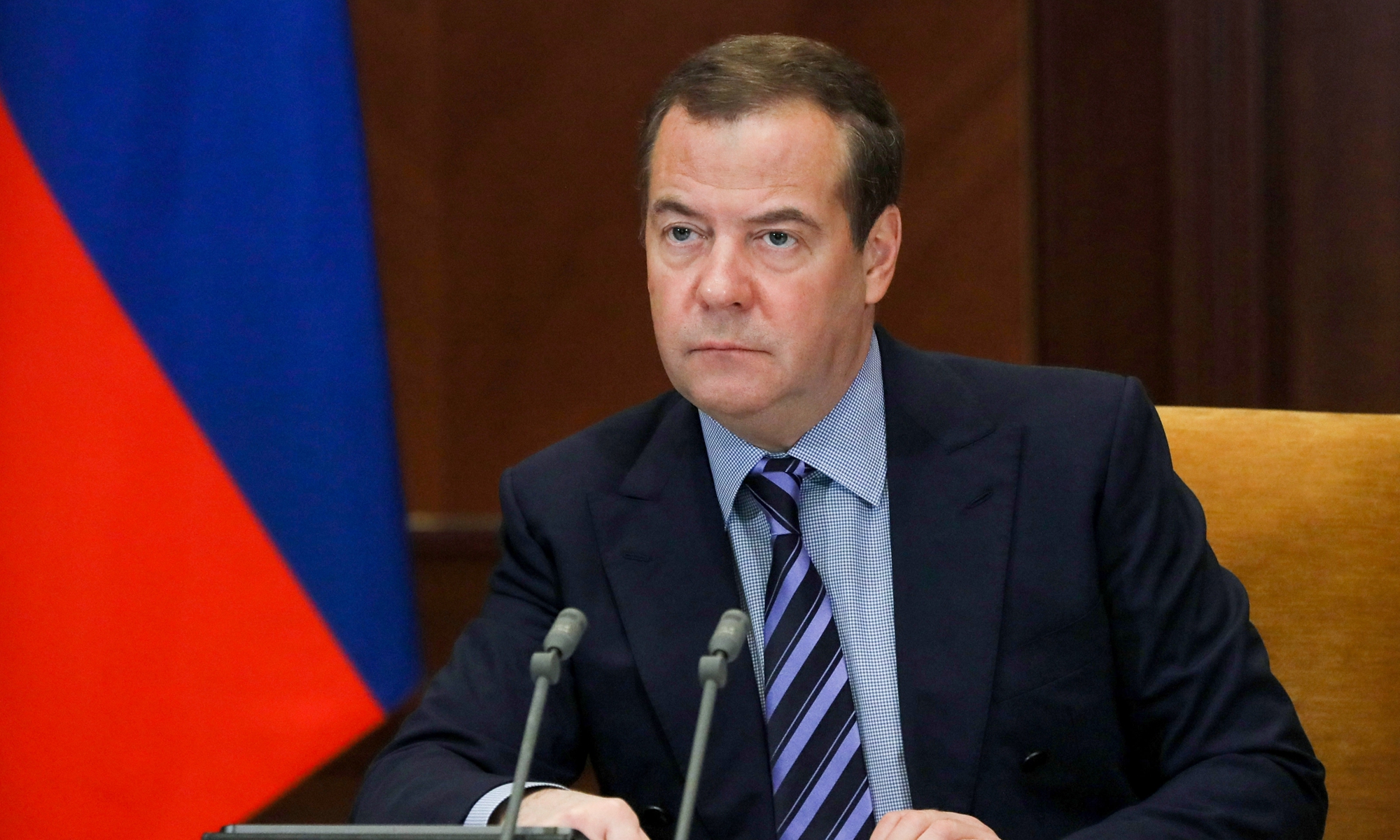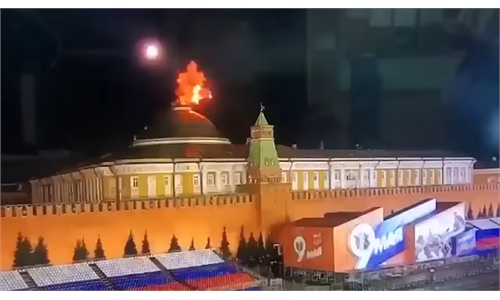A new showdown as Medvedev calls for ‘physical elimination’ of Zelenskyy

Deputy Chairman of the Russian Security Council Dmitry Medvedev. Photo:VCG
Deputy Chairman of the Security Council of Russia Dmitry Medvedev on Wednesday called for the "physical elimination" of Ukraine's President Volodymyr Zelenskyy and his cabal. This is the first time that Moscow made such a direct declaration. After the drone attack on the Kremlin, Medvedev wrote on social media that "there are no options left aside the physical elimination of Zelenskyy and his cabal," adding that Zelenskyy is not even needed for signing an instrument of unconditional surrender."Would Russia really do that? Is it capable of "physically eliminating" Zelenskyy and his cabal? Not to hurt each other's leader has been a tacit rule since the outbreak of the Russia-Ukraine conflict. Both Putin and Zelenskyy have been to the warzone in person and were within range of the artillery fire from the other side. Although both sides have kept the leader's itinerary secret, if Russia and Ukraine intended to "behead" the president of the other side, it is not impossible to discover their major whereabouts with the help of satellite and ground intelligence. Western intelligence networks will also help Ukraine. Still, the two sides had made up their minds not to use such a ruthless method, which made the atmosphere of Putin and Zelenskyy's frontline inspections relatively relaxed.
Now Russia believes that the drones that attacked the Kremlin were directed by Ukraine in a bid to murder President Putin, Dmitry Medvedev's call on the military to "physically eliminate" Zelenskyy and his cabal could be seen as a decisive showdown. If both Russia and Ukraine take the elimination of each other's leader as a shortcut to defeat the other, the war will take on a new look.
It would be difficult for Ukraine to "behead" Putin, and Kiev would rely primarily on infiltration of Russian personnel, including ambushing Putin abroad. Even if Kiev doesn't achieve its goal of assassination, it would expose Putin to additional security limitations on his movements.
Following Medvedev's announcement, Zelenskyy and his key associates will face much greater personal security pressure than in the past. The Russian military has the capability to carry out repeated missile attacks on Zelenskyy's office and locations, and even if the Russian military doesn't take these actions, the Ukrainian side will fear that Moscow may "hold back" and launch a sudden decapitation against Zelenskyy if intelligence is accurate. Certainly, this would not be easy for Moscow as Kiev's air defenses are getting stronger with the help of the West. More importantly, Russian forces need very accurate intelligence to support a decapitation of the Ukrainian leader, which would be a challenge for Moscow.
If the war in Ukraine does not stop sooner, it will quite likely increasingly develop toward defiance of the rules, with both sides making their most ruthless moves one step at a time. As we know, the war has been restrained by "civilization" so far, to many degrees. And although the amount of ammunition used in the war is very large, the overall number of civilian casualties does not seem so. The Russian side has made several nuclear threats, but the wording has been relatively vague. It is believed that Moscow will not use nuclear weapons at this stage, which remains the prevailing opinion in strategic circles and public opinion. The concern is that if this war turns into a reckless fight, where the sole goal is killing the other side. In that case, it could somehow encourage Moscow to use nuclear weapons eventually.
War is not an assembly line; it consists of abrupt changes that could be the trigger for catastrophic consequences.
The author is a commentator with the Global Times. opinion@globaltimes.com.cn


